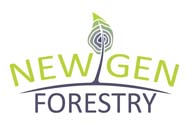Sustainable Forest Management
Sustainable Forest Management
NewGen Forestry is committed to the practice of Sustainable Forest Management, which, under the Helsinki and Lisbon Agreements, is understood to mean:
“The stewardship and use of forests and forest lands in a way and at a rate that maintains their biodiversity, productivity, regenerative capacity, vitality and their potential to fulfil now and in the future, relevant ecological, economic and social functions as local, national and global levels and that does not cause damage to other ecosystems”.
Globally, Sustainable Forest Management is being implemented through the development of national forestry standards.
Forest management has been based on the principle of sustained yield management for generations. However, society today demands more of the forest than a sustained supply of wood and wood products.
Forester managers should recognise the socio-economic role of forests, their contribution to the environment, the quality of life and their role in carbon sequestration and enhancing biodiversity. Sustainable Forest Management seeks a balance between the economic, environmental, and social functions of forests.
Sustainable Forest Management as defined, involves the management of the whole ecosystem, and a greater level of scientifically based management. The interaction of the forest and the wider environment is understood more keenly than ever before. As our knowledge of ecosystem processes develops, forest management skills are being improved.

